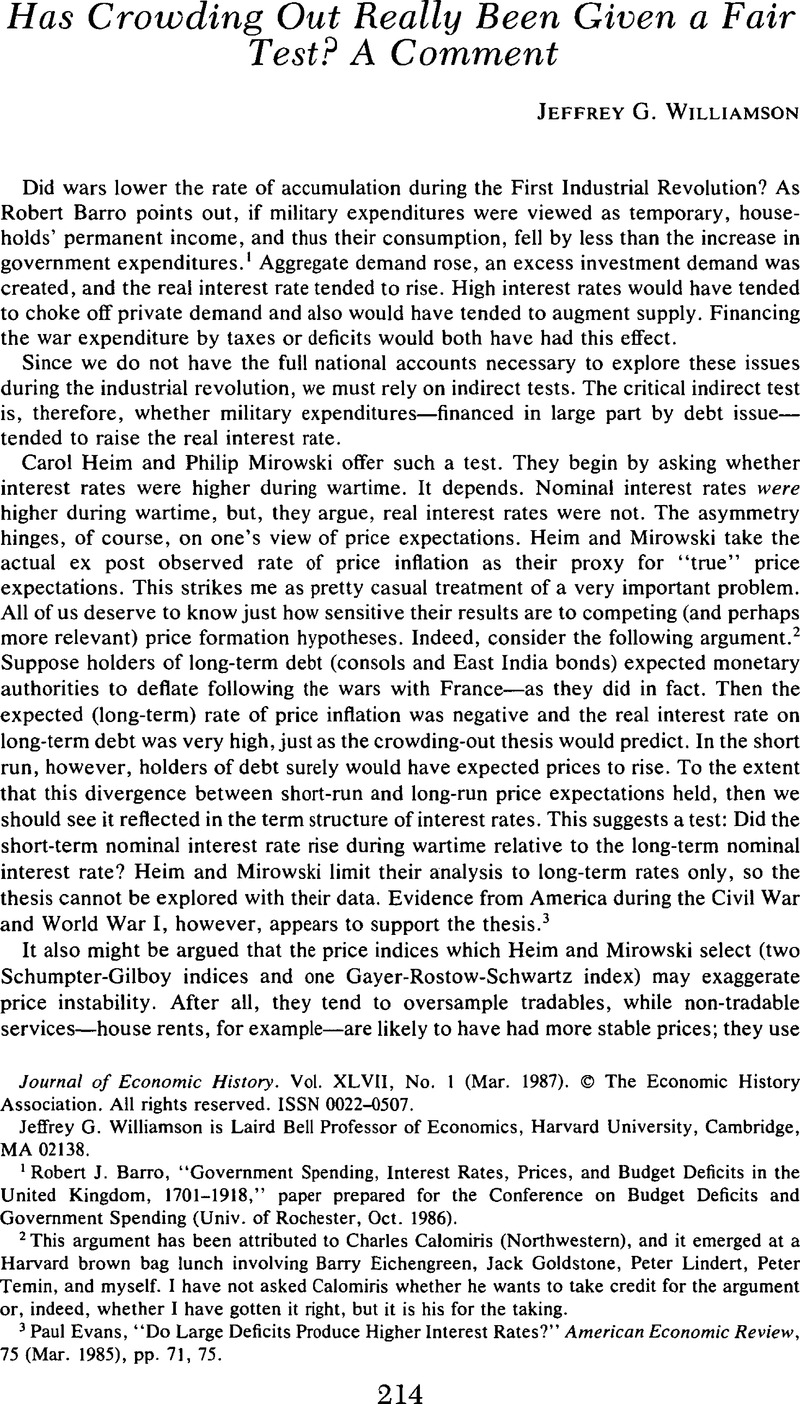Article contents
Has Crowding Out Really Been Given a Fair Test? A Comment
Published online by Cambridge University Press: 03 March 2009
Abstract

- Type
- Notes and Discussion
- Information
- Copyright
- Copyright © The Economic History Association 1987
References
1 Barro, Robert J., “Government Spending, Interest Rates, Prices, and Budget Deficits in the United Kingdom, 1701–1918,” paper prepared for the Conference on Budget Deficits and Government Spending (University of Rochester, 10 1986).CrossRefGoogle Scholar
2 This argument has been attributed to Charles Calomiris (Northwestern), and it emerged at a Harvard brown bag lunch involving Barry Eichengreen, Jack Goldstone, Peter Lindert, Peter Temin, and myself. I have not asked Calomiris whether he wants to take credit for the argument or, indeed, whether I have gotten it right, but it is his for the taking.Google Scholar
3 Evans, Paul, “Do Large Deficits Produce Higher Interest Rates?” American Economic Review, 75 (03 1985), pp. 71, 75.Google Scholar
4 The following paragraph draws on my Debating thBritish Industrial Revolution,” Explorations in Economic History (forthcoming).Google Scholar
5 The role of imperfect capital and labor markets on accumulation is stressed in my paper “The Economic Impact of Factor Market Failure on the British Economy in the 1830s,”presented to the American Economic Association Meeting (New Orleans, 12 1986).Google Scholar
- 5
- Cited by


